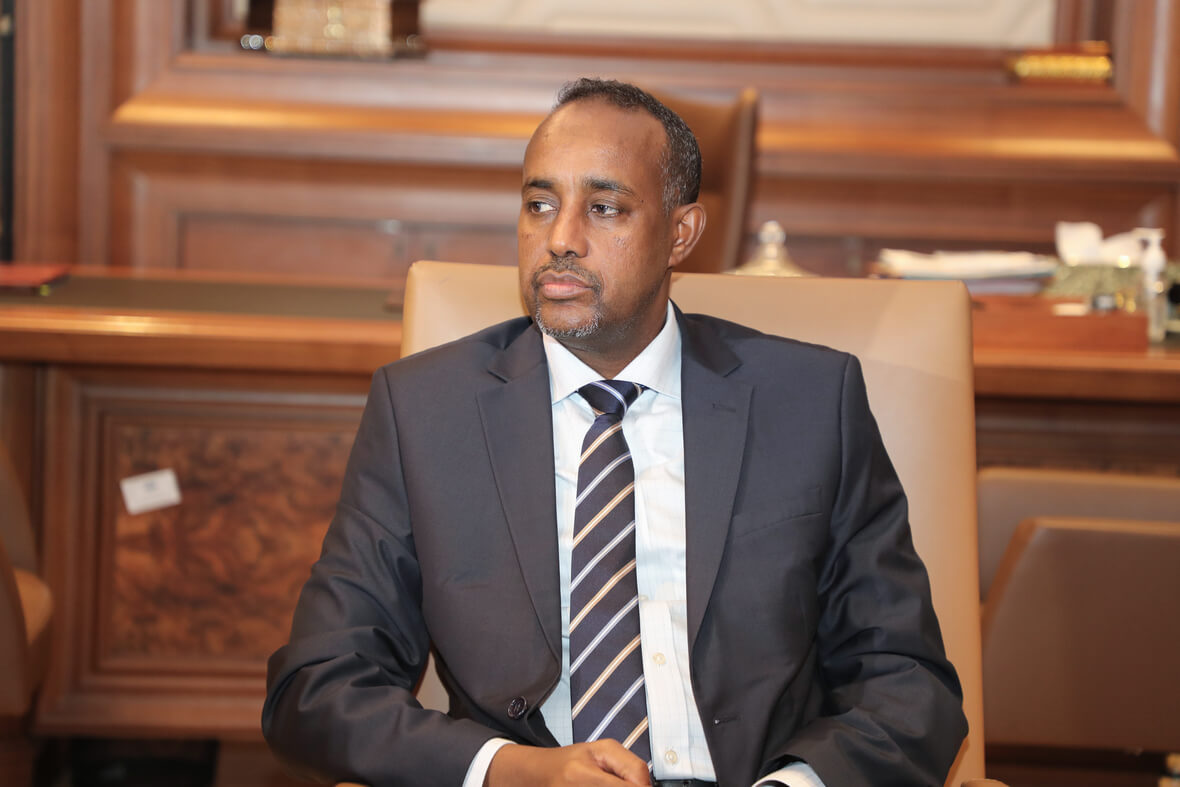The rift between Somali President Mohamed Abdullahi Mohamed “Farmaajo” and Prime Minister (PM) Hussein Roble regarding the role of Fahad Yasin, the country’s intelligence chief, intensified last week, threatening to push the country into a fresh political crisis amid attempts to conduct parliamentary elections.
Tensions mounted after Farmaajo overturned the intelligence chief’s suspension by PM Roble on Monday. Yasin was dismissed by the PM for mishandling the investigation into the disappearance of a Somali intelligence agent who is believed to have been killed by Al Shabaab militants.
Roble suspended Yasin as the Director-General of the National Intelligence and Security Agency (NISA) and replaced him with his deputy, Bashir Mohamed Jama. However, Farmaajo’s office stated that the President had cancelled the PM’s order and reinstated Yasin.
Moreover, Farmaajo appointed Yasin as his National Security Adviser on Wednesday, further intensifying the feud between the two leaders. The President’s office stated that Yasin resigned as NISA chief and was assigned the adviser post. “As such, the president accepts the resignation by Fahad Yasin and praises the immense work done by the former NISA director,” the statement said.
Reacting to the developments, Roble said the President’s actions amounted to interference into the investigation of the Somali agent’s death and warned that it was a “dangerous existential threat to the country’s governance system.” He also accused Farmaajo of “obstructing” the investigation process and noted that the President was trying to reclaim “the election and security responsibilities” from him.
The clash between the two leaders is centred around the alleged kidnapping and murder of Somali intelligence agent Ikram Tahlil Farah in June by Al Shabaab militants. Last week, a report released by NISA blamed Al Shabaab for Farah’s death. However, the PM expressed dissatisfaction with the report, which he said was “not convincing” enough and suspended Yasin as NISA chief.
The case garnered more attention when Al Shabaab released a statement denying its involvement in Farah’s murder. Furthermore, Farah’s parents accused NISA of her murder and trying to cover up the crime, a view backed by many Somalis, who have taken to social media to criticise the agency and its role.
Apart from this issue, Farmaajo and Roble have been at odds over Somalia’s diplomatic ties with other nations. In August, Roble countered a Presidential order banning Somali institutions from signing deals with foreign entities during election season. Roble dismissed the order and urged institutions to work according to “laws of the state,” which allow for such deals.
Meanwhile, the African Union Mission in Somalia (AMISOM) has called on both leaders to end their differences immediately. “We urge Somali leaders to de-escalate the political confrontation surrounding this investigation and, in particular, avoid any actions that could lead to violence,” it stated.
In April, Somalia’s lower house of the parliament extended Farmaajo’s term as President by two years, despite it ending in February. The move, condemned by the Somali opposition, further delayed the country’s presidential and parliamentary elections. However, facing pressure from the international community, an agreement was reached by Farmaajo and the opposition in May to hold the polls by October. According to the agreement, Roble was tasked with leading the electoral process. However, the latest row threatens to undo any progress made on this front and lead the country into a larger political crisis.

